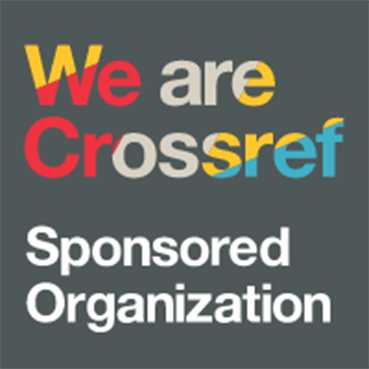Strategi Kebijakan Kepala Sekolah yang Berdaya Saing: Meningkatkan Mutu Pendidikan melalui Analisis SWOT
DOI:
https://doi.org/10.47766/almabhats.v9i1.2399Keywords:
Branding Image, Principal Policy, SWOT Analysis, Quality of EducatonAbstract
Abstract: This study aims to analyze the policy formulation processes undertaken by school principals, evaluate the quality of education, and explore the implications of educator quality through a SWOT analysis framework. Employing a qualitative descriptive research design, data were collected via observations, structured interviews, and document analysis. Data analysis involved systematic data reduction and presentation techniques. Findings reveal that the quality education policy process is characterized by the development of comprehensive program planning in collaboration with all relevant stakeholders within the school context, followed by effective program implementation. The assessment of educational quality is guided by adherence to the eight National Education Standards established by government regulations. The principal's strategies for enhancing educational quality include the formulation of targeted activity programs. The implications of the implemented strategies indicate that educators are equipped to deliver content effectively, utilizing technological and computational tools. Additionally, educators demonstrate proficiency in Quranic recitation and employ innovative and engaging pedagogical methods. This study is anticipated to yield significant contributions to educational practice. The benefits of this research are twofold: theoretically, it enriches the existing literature, and practically, it serves the interests of schools, principals, teachers, students, and all stakeholders involved in the educational ecosystem.
Abstrak: Penelitian ini bertujuan untuk mengetahui proses kebijakan kepala sekolah, mengetahui mutu pendidikan, mengetahuiImplikasi mutu pendidik berbasis analisis SWOT.Penelitian ini merupakan penelitian deskriptif kualitatif. Pengumpulan data dilakukan dengan observasi, wawancara, dan dokumentasi. Data dianalisis reduksi data, penyajian data.Hasil penelitian menunjukkan bahwa Proses kebijakan mutu pendidikan dengan membuat suatu perencanaan /perumusan program kemudian berkerjasama dengan seluruh stkeholder yang ada di sekolah tersebut menjalankan (implementasi program). Mutu pendidikan-nya adalah dengan menggunakan 8 Standar Nasional Pendidikan yang sesuai dengan Peraturan Pemerintah, kebijakannya kepala sekolah dalam meningkatkan mutu pendidikan adalah dengan membuat program kegiatan.Implikasi dari strategi yang telah diupayakan oleh sekolah ialah pendidik dapat mengajar sesaui dengan materi dan mengaplikasikan dengan alat teknologi dan komputer, pendidik dapat membaca Al-Quran dengan tartil serta dapat menngunakan metode pembelajaran yang kreatif dan aktif. Hasil penelitian ini diharapkan memberi manfaat yang berarti. Manfaat dapat dilihat dari sifat dan sasarannya. Dari segi sifat, manfaat penelitian dapat berupa manfaat teoritis dan manfaat praktis. Dari sisi sasaran, manfaat dapat ditujukan kepada Sekolah, Kepala Sekolah, guru , murid dan semua lapisan ozon yang terlibat dalam dunia pendidikan
References
DeMatthews, D., Carrola, P., Reyes, P., & Knight, D. (2021). School Leadership Burnout and Job-Related Stress: Recommendations for District Administrators and Principals. The Clearing House: A Journal of Educational Strategies, Issues and Ideas, 94(4), 159–167. https://doi.org/10.1080/00098655.2021.1894083
Hadi, A. (2013). Konsep Analisis Swot Dalam Peningkatan Mutu Lembaga Madrasah. Jurnal Ilmiah Didaktika, 14(1), 143–158. https://doi.org/10.22373/jid.v14i1.494
Ilyas, M., Matsyah, A., & Ismail, Z. (2023). Exploring the Proficiency of Dayah’s Teaching and Educational Staff for Sustainable Development in Aceh. Idarah (Jurnal Pendidikan Dan Kependidikan), 7(1), 53–68. https://doi.org/10.47766/idarah.v7i1.1620
Leite, N. (2024). CIDESD International Congress 2023. Motricidade, 20. https://doi.org/10.6063/motricidade.33901
Lincove, J. A., Osborne, C., Mills, N., & Bellows, L. (2015). Teacher Preparation for Profit or Prestige: Analysis of a Diverse Market for Teacher Preparation. Journal of Teacher Education, 66(5), 415–434. https://doi.org/10.1177/0022487115602311
Mattjik, M., Akbar, M., & Yasin, M. (2020). Managing human resources in a higher education institution: Managing the lecturers. International Journal of Scientific and Technology Research, 9(1), 2360–2363. https://www.scopus.com/inward/record.uri?eid=2-s2.0-85078896284&partnerID=40&md5=fd64aee8f02b0c8b7298c881c978cdc1
Perrone, F., & Tucker, P. D. (2019). Shifting Profile of Leadership Preparation Programs in the 21st Century. Educational Administration Quarterly, 55(2), 253–295. https://doi.org/10.1177/0013161X18799473
Salabi, A. S., Muadin, A., & Prasetyo, M. A. M. (2023). Improving the Quality of Learning Organizations through School Effectiveness. QALAMUNA: Jurnal Pendidikan, Sosial, Dan Agama, 15(1), 243–254. https://doi.org/https://doi.org/10.37680/qalamuna.v15i1.2321
Sasmito, A. P., Kustono, D., Purnomo, P., & Elmunsyah, H. (2020). Conceptual Model for Improving Quality of Teacher in Indonesian Vocational Cchool. International Journal of Evaluation and Research in Education (IJERE), 9(1), 39. https://doi.org/10.11591/ijere.v9i1.20390
Sudiarti, L., & Rivai, F. H. (2023). Development strategy of human resource competency in the preservation field. Record and Library Journal, 9(2), 268–282. https://doi.org/10.20473/rlj.V9-I2.2023.268-282
Tolchah, M., & Mu’ammar, M. A. (2019). Islamic Education in the Globalization Era. Humanities & Social Sciences Reviews, 7(4), 1031–1037.
Tuna, M. H. (2022). The Professionalisation of Islamic Religious Education Teachers. British Journal of Religious Education, 44(2), 188–199. https://doi.org/10.1080/01416200.2021.1999905
Willis, L.-D., Povey, J., Hodges, J., & Carroll, A. (2021). Presenting School Learning Findings (pp. 55–65). https://doi.org/10.1007/978-981-16-1264-0_5
Downloads
Published
How to Cite
Issue
Section
License
Copyright (c) 2024 Alamsyah Umar

This work is licensed under a Creative Commons Attribution-ShareAlike 4.0 International License.





